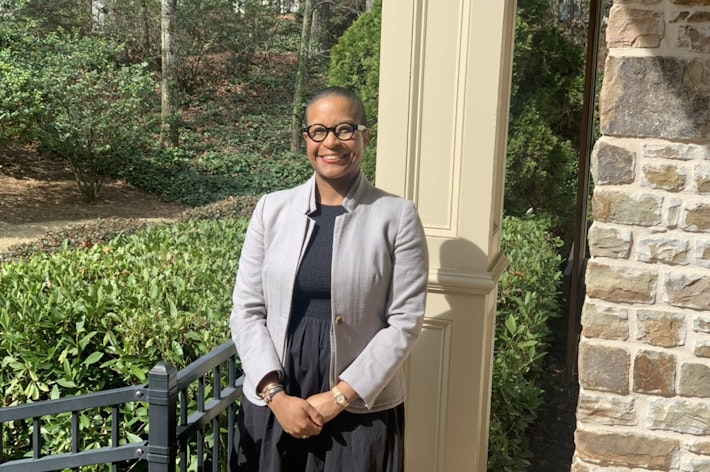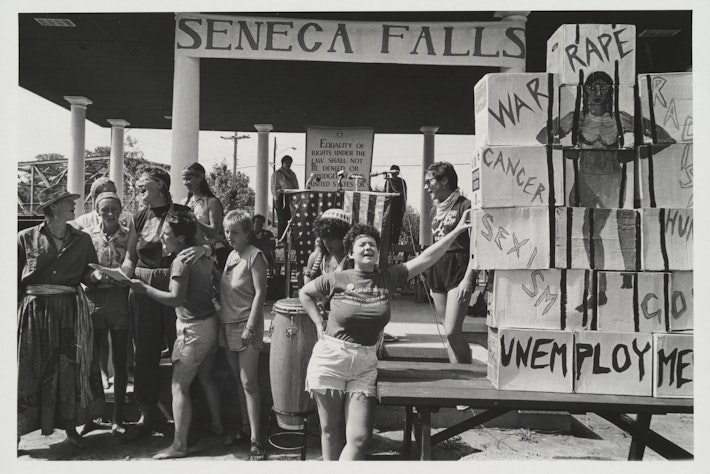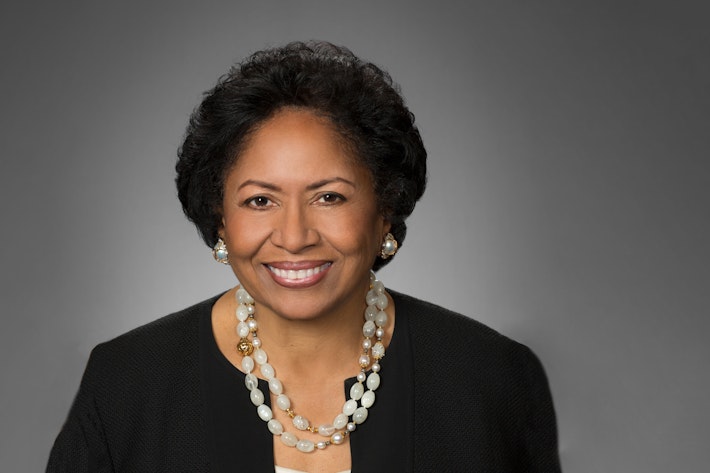Founding Mothers
A broad range of scholarly and public programming throughout the 2018 calendar year will commemorate the Schlesinger’s first three-quarters of a century and look ahead to the next.
During the summer of 1943, Radcliffe College received a stunning gift from Maud Wood Park, Class of 1898: the Woman’s Rights Collection. Active in the drive for women’s suffrage during her college days, Park had dedicated her life to the cause, enduring loss and failure many times over the long, difficult years. As she organized new movement groups in Massachusetts and beyond, she documented the fight, amassing boxes of letters, hundreds of books and periodicals, and a dense social network of battle-hardened veterans who wanted to be sure their stories could be told long after the 19th Amendment was ratified, on August 26, 1920.
Radcliffe dedicated the Woman’s Rights Collection in August 1943, on the 23rd anniversary of that landmark moment. War raged around the globe; the Axis powers controlled much of the Pacific and all of continental Europe. The Radcliffe librarian, Georgiana Hinckley, described the challenges of the College library’s “second full year under wartime conditions”: budgets stretched to breaking, “an unprecedented turnover in personnel,” and the compounding effects of deferred maintenance on the physical plant. (There were unintended benefits, too: the war had lessened Harvard men’s demands on Widener, and Radcliffe women found themselves with new library privileges.) Despite the press of war, a fireproof room was readied in Longfellow Hall to house Maud Wood Park’s gift. A line from a famous 1773 letter by Abigail Adams labeled the space: Remember the Ladies.
A photograph in the Radcliffe Archives documents the ceremony that marked the collection’s founding (above). Three young women, tricked out in smart suits and dresses of suffrage white, their legs covered with the thick stockings that wartime rationing demanded, pull the wagon from which Park and her suffrage sisters had once sold The Woman’s Journal, for a nickel a copy. Four more ride in the wagon, its flat surfaces crudely painted with movement slogans: “8,000,000 WORKING WOMEN NEED THE VOTE FOR EQUAL PAY FOR EQUAL WORK AND ALL-LABOR LEGISLATION.” “90% OF THE TEACHERS ARE WOMEN. THE NATION NEEDS INTELLIGENT VOTERS.” “GIVE THE VOTE TO ALL CLASSES OF WOMEN.” As they pull the wagon up to Longfellow Hall, the daughters of the movement lean forward into their burden, as if into the future.
That day in Cambridge in 1943 marked the beginnings of the Schlesinger Library, which turns 75 in 2018: an anniversary layered on an anniversary. Park’s founding collection of 30 boxes of manuscripts, 142 books, 128 volumes of The Woman’s Journal and other magazines, and “much miscellaneous material” seeded an archive whose scale and depth she can scarcely have imagined. More than 4,000 manuscript collections fill three fireproof vaults, with other material held securely offsite. A soaring, sunfilled reading room enhances the work of our researchers; upcoming renovations to our historic main building will unlock fresh ways to teach and learn from these important collections.
A broad range of scholarly and public programming throughout the 2018 calendar year will commemorate the Schlesinger’s first three-quarters of a century and look ahead to the next. We’ll relish the moment in the founders’ shadow and in their honor. There will be cake.
But there must be reckoning, as well. Too many of the slogans on the suffrage wagon still have force today. The Schlesinger’s collections give depth and context to those demands, radical now as then. Remembering the ladies is necessary, but hardly sufficient. There is work to be done.







